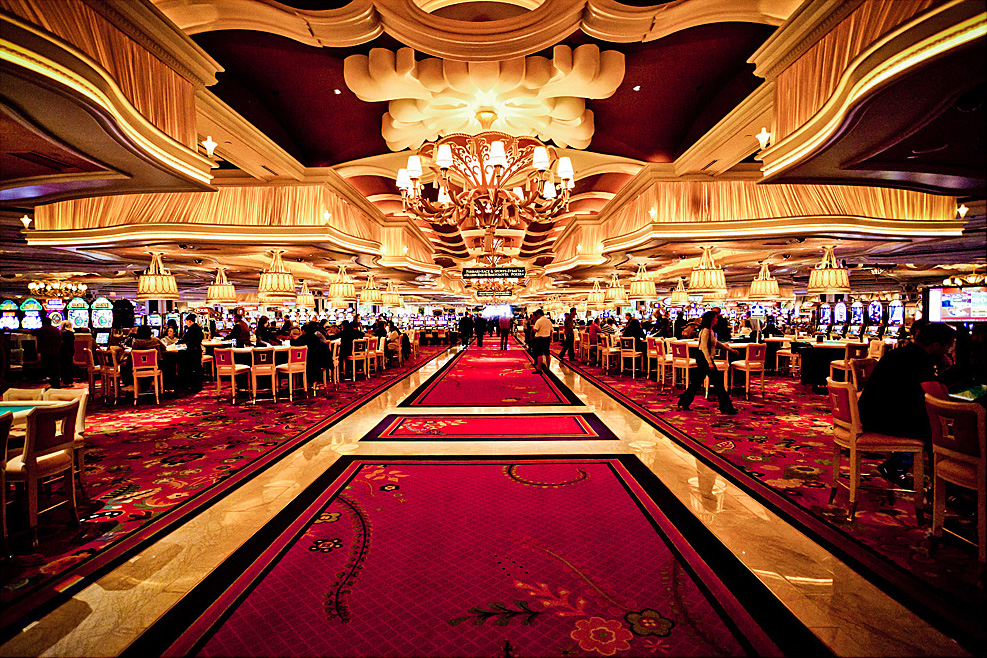
Casino gaming has long been a topic of interest and debate, attracting millions of players globally. With a blend of luck, skill, and the thrill of uncertainty, casino games offer an exhilarating escape from everyday life. 78win However, as entertainment becomes ever more accessible, it invites a deeper examination of the morality surrounding these games.
At the heart of the debate lies the question of whether casinos promote safe gambling or exploit at-risk individuals. The appeal of potential winnings versus the reality of losses can create a complex dynamic, and understanding this balance is essential for both players and operators. As we delve into the morals of casino gaming, we will explore the responsibilities of casinos, the impact on society, and the steps that can be taken to foster a better gaming environment.
The Impact of Casino Gaming on Society
Casino gaming has a considerable influence on the community, affecting not only the financial landscape but also social behaviors and community structures. The revenue generated from casinos can lead to employment opportunities and boost local economies, as they provide multiple employment opportunities in different sectors including food and beverage, leisure activities, and retail. However, while the financial benefits can be significant, communities often grapple with the possible negative impacts that arise from increased gambling activity.
Moreover, the presence of casinos can lead to an rise in gambling addiction, presenting serious challenges for players and families. The excitement of casino games can quickly evolve into a compulsive habit, affecting connections with others and leading to monetary issues. Many players may find it difficult with the loss of control over their gambling behaviors, resulting in a need for assistance programs and interventions to address this increasing issue. The social cost of gambling addiction can ripple through families and neighborhoods, creating an urgent need for sensible gambling approaches.
In addition to the economic and social consequences, casino gaming often reflects cultural attitudes towards risk and leisure. It can foster a sense of joy and leisure, attracting tourists and boosting tourism. However, this allure may also conceal the broader implications of gambling as a method of entertainment, raising ethical questions about its promotion and availability. As communities weigh the benefits and drawbacks of casino gaming, the need for responsible practices and oversight becomes increasingly critical in ensuring that the positive aspects are maximized while reducing the negative effects. bắn cá 78win
Moral Issues in Betting Activities
The morality of casino gaming often center around the potential for addiction and its effects on individuals and families. Gambling can lead to significant financial distress, impacting not only the betters but also their loved ones. As individuals become entrapped in the allure of winning, many lose track of their budget, which can result in devastating results such as insolvency. This raises ethical questions about the responsibility of gambling establishments in fostering safe gambling practices and offering support for those who may be dealing with gambling addiction.
Another critical issue is the promotion of betting to at-risk groups. Gambling establishments often aim at low-income individuals or neighborhoods with the offer of quick gains, which can continue patterns of poverty and hopelessness. In this situation, the morality of advertising strategies used by casinos come under scrutiny, as they may take advantage of the need of people seeking an way out from financial hardships. This manipulation raises moral questions about the honesty of the gambling industry and its obligation to safeguard its most at-risk patrons.
Additionally, the impact of gambling gaming on society as a entirety cannot be overlooked. While some argue that gambling establishments create jobs and boost local economies, others point to the community costs associated with dysfunctional gambling, increased crime rates, and a burden on public resources. Balancing economic benefits with the potential for social harm presents a complex moral dilemma for lawmakers and casino operators alike. The challenge lies in discovering a ethical approach that prioritizes the welfare of individuals and communities while still permitting for the enjoyment of casino activities.
Regulation Structure and Responsibilities
The oversight system surrounding gambling games is developed to ensure fairness, honesty, and participant security. Different government bodies and casino commissions establish and enforce regulations that dictate how casino operations operate, the criteria for game creation, and the processes for managing rewards. These regulations differ by locale but usually involve licensing requirements for operators and rigorous measures to avoid cheating and scams.
In also to governing bodies, gaming businesses bear considerable duty in upholding moral standards within their venues. They must implement safe gaming practices that support gambler security and consciousness, including providing self-ban options and offering information about the dangers associated with gaming. Operators are also responsible for educating workers to recognize signs of compulsive betting and be aware of the correct measures to help visitors in distress.
Moreover, openness in gambling operations is vital for gaining and maintaining public faith. Gaming establishments should present clear information about the chances of games, promotional offers, and any associated dangers. By creating an atmosphere of honesty and responsibility, operators can help lessen the potential adverse impact of gambling while improving the overall betting experience for all participants.
